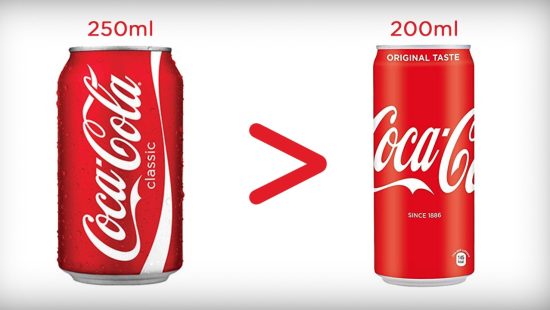For centuries, humans have searched for the secret to eternal youth. What used to be magic potions and folklore has now become a growing field of scientific research focused on understanding how our daily habits—what we eat, how we sleep, and even how we socialize—can either accelerate or slow down the aging process.
Aging isn’t just about how you look—it’s about how your cells function. Scientists now use tools called epigenetic clocks to measure biological age (how old your body truly is on a cellular level), rather than your chronological age. These clocks are offering new insights into what really affects longevity and age-related diseases like Alzheimer’s, cancer, and heart disease.
According to Calen Ryan, a researcher at Columbia University’s Aging Center, “Most of the things that are bad for your health are also bad for aging.” But the good news? It’s never too late to make changes. “You can improve your health and lower disease risk at virtually any age,” says Matt Kaeberlein, a longevity expert from the University of Washington.
Below are the top 11 scientifically backed habits that are accelerating your aging—and what you can do to stop them.
- Poor Sleep: Less Than 8 Hours Speeds Up Aging
Sleep is essential for cellular repair. Studies show that sleeping less than 8 hours a night accelerates signs of aging like wrinkles, puffiness, and skin sagging. Interrupted sleep also disrupts circulation and impairs your immune system.
What to do: Prioritize a consistent sleep routine and avoid screens and caffeine before bed.
- Chronic Stress: The Silent Agitator
Stress releases cortisol and adrenaline, which in large amounts damage cells and accelerate aging. A constant “fight or flight” state taxes your immune system and increases the risk of disease.
What to do: Practice mindfulness, meditation, or breathing exercises daily—even 10 minutes helps.
- Smoking: A Direct Hit to Your Skin and Cells
Tobacco smoke deprives skin cells of oxygen and nutrients while triggering enzymes that destroy collagen and elastin—leading to premature wrinkles and internal cellular aging.
What to do: Quitting smoking is one of the fastest ways to slow down aging and improve health outcomes.
- Not Drinking Enough Water
Dehydration makes skin appear dull and aged, while also slowing down the body’s ability to detox.
What to do: Men should drink about 2.5 liters per day; women about 2 liters.
- Excess Caffeine
While coffee and tea have antioxidants, too much caffeine leads to anxiety, poor sleep, and higher stress—all factors that accelerate aging.
What to do: Limit yourself to two caffeinated drinks per day and avoid caffeine six hours before bedtime.
- Too Little—or Too Much—Exercise
Moderate activity helps delay aging, but extreme workouts may do the opposite. A long-term study of Finnish twins found that those who exercised excessively appeared biologically 1.8 years older. Overtraining stresses the kidneys and heart.
What to do: Aim for 45 minutes of moderate exercise daily, and include strength training a few times a week.
- Too Much Sugar
Sugar causes glycation, which binds to collagen and elastin, damaging your skin and arteries. It also raises the risk of diabetes, inflammation, and heart disease.
What to do: Cut back on sugary drinks and processed foods. Learn to identify hidden sugars like fructose, maltose, and corn syrup.
- Social Isolation: Deadlier Than You Think
A lack of strong social ties increases your risk of death more than obesity or physical inactivity. Some studies equate its harm to smoking 15 cigarettes a day.
What to do: Stay socially engaged. Even small interactions like greeting a neighbor or calling a friend can extend your lifespan.
- Drastic Diets & Late-Life Weight Loss
While obesity is a known risk factor, new research shows that losing weight too quickly—or losing it in later life—can actually make you biologically older. This may be due to muscle loss and underlying illness.
What to do: Focus on long-term healthy eating and muscle-preserving activities rather than extreme diets.
- Not Using Sunscreen Daily
UV rays are a major cause of skin aging and cancer. Even on cloudy days, sun damage occurs.
What to do: Apply SPF 30 or higher every day, especially to your face and neck.
- Living in a “Concrete Jungle”
A 2023 study showed that people with limited access to green spaces aged faster biologically. Nature helps reduce stress, improve mood, and may even lengthen lifespan by an average of 2.5 years.
What to do: Take a walk in the park, plant a garden, or simply sit outside when possible.
Don’t Skip Your Medical Checkups
Preventive health visits catch up to 90% of illnesses early.
Checkup frequency:
- Under 40: every 4 years
- Age 40–60: every 2 years
- Over 60: annually
What About Pregnancy?
A 2024 study by Columbia University found that pregnancy may slightly accelerate biological aging in young women. However, this effect appears to reverse within three months postpartum, especially when mothers receive adequate support.
What this means: The takeaway is not to avoid motherhood, but to recognize the need for better care for pregnant people and young mothers.
Nutrition Habits That Age You—Or Save You
Foods that speed up aging:
- Sugary drinks
- Butter and margarine
- Agave syrup (high in fructose)
- Rice cakes (high glycemic index)
- Excess salt
How to eat for youth:
- Increase fiber from fruits, veggies, and legumes
- Choose whole grains
- Limit processed foods
- Opt for lean proteins and healthy fats
- Stay hydrated
While we can’t stop time, we can slow its toll. Each choice you make—how you sleep, move, eat, and connect—either adds years to your life or takes them away.








